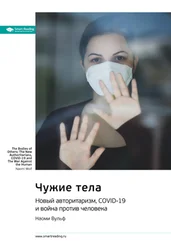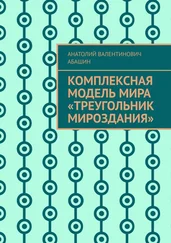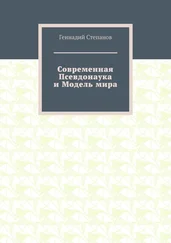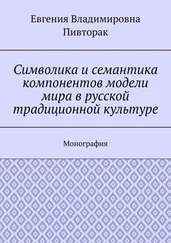57. Myers, D. G., Psychologie (Springer-Verlag, 2014).
58. Plomin, R. & Deary, I. J., Genetics and intelligence differences: five special findings. Mol. Psychiatry 20, 98–108 (2015).
Исследование усыновления, удочерения и генетики
59. Davies, G. et al., Genome-wide association studies establish that human intelligence is highly heritable and polygenic. Mol. Psychiatry 16, 996–1005 (2011).
60. Petrill, S. A. & Deater-Deckard, K., The heritability of general cognitive ability: A within-family adoption design. Intelligence 32, 403–409 (2004).
61. Plomin, R., Fulker, D. W., Corley, R. & DeFries, J. C., Nature, Nurture, and Cognitive Development from 1 to 16 Years: A Parent-Offspring Adoption Study. Psychol. Sci. 8, 442–447 (1997).
Интеллект и равенство возможностей
62. Asbury, K. & Plomin, R., G is for Genes: The Impact of Genetics on Education and Achievement (John Wiley & Sons, 2013).
63. Tucker-Drob, E. M. & Bates, T. C., Large Cross-National Differences in Gene × Socioeconomic Status Interaction on Intelligence. Psychol. Sci. 27, 138–149 (2016).
А не слишком ли мы глупы для поиска генов интеллекта?
64. Chabris, C. F. et al., Most reported genetic associations with general intelligence are probably false positives. Psychol. Sci. 23, 1314–1323 (2012).
65. Hill, W. D. et al., A combined analysis of genetically correlated traits identifies 187 loci and a role for neurogenesis and myelination in intelligence. Mol. Psychiatry 1 (2018).
66. Plomin, R., Genetics and general cognitive ability. Nature 402, C25–C29 (1999).
67. Sniekers, S. et al., Genome-wide association meta-analysis of 78,308 individuals identifies new loci and genes influencing human intelligence. Nat. Genet. 49, 1107–1112 (2017).
Как стать менее глупым?
68. Wolf, M. B. & Ackerman, P. L., Extraversion and intelligence: A meta-analytic investigation. Personal. Individ. Differ. 39, 531–542 (2005).
Интеллект делает сексуальным?
69. Gignac, G. E., Darbyshire, J. & Ooi, M., Some people are attracted sexually to intelligence: A psychometric evaluation of sapiosexuality. Intelligence 66, 98–111 (2018).
70. Pierce, A., Miller, G., Arden, R. & Gottfredson, L. S., Why is intelligence correlated with semen quality? Commun. Integr. Biol. 2, 385–387 (2009).
71. Ritchie, S. J. & Tucker-Drob, E. M., How Much Does Education Improve Intelligence? A Meta-Analysis. Psychol. Sci. 29, 1358–1369 (2018).
Как не повысить интеллект
72. Dijksterhuis, A. & van Knippenberg, A., The relation between perception and behavior, or how to win a game of trivial pursuit. J. Pers. Soc. Psychol. 74, 865–877 (1998).
73. O’Donnell, M. et al., Registered Replication Report: Dijksterhuis and van Knippenberg (1998). Perspect. Psychol. Sci. J. Assoc. Psychol. Sci. 13, 268–294 (2018).
74. Pietschnig, J., Voracek, M. & Formann, A. K., Mozart Effect-Shmozart Effect: A Meta-Analysis. Intelligence 38, 314–323 (2010).
75. Rauscher, F. H., Shaw, G. L. & Ky, K. N., Music and spatial task performance. Nature 365, 611 (1993).
Свинец отупляет?
76. Bellinger, D. C., Childhood Lead Exposure and Adult Outcomes. JAMA 317, 1219–1220 (2017).
77. Bellinger, D. C., Neurological and behavioral consequences of childhood lead exposure. PLOS Med. 5, e115 (2008).
78. Cecil, K. M. et al., Decreased Brain Volume in Adults with Childhood Lead Exposure. PLOS Med. 5, e112 (2008).
79. Kaufman, A. S. et al., The possible societal impact of the decrease in U.S. blood lead levels on adult IQ. Environ. Res. 132, 413–420 (2014).
80. Needleman, H. L., McFarland, C., Ness, R. B., Fienberg, S. E. & Tobin, M. J., Bone lead levels in adjudicated delinquents: A case control study. Neurotoxicol. Teratol. 24, 711–717 (2002).
81. Needleman, H. L., Riess, J. A., Tobin, M. J., Biesecker, G. E. & Greenhouse, J. B., Bone Lead Le- vels and Delinquent Behavior. JAMA 275, 363–369 (1996).
82. Nevin, R., How Lead Exposure Relates to Temporal Changes in IQ, Violent Crime, and Unwed Pregnancy. Environ. Res. 83, 1–22 (2000).
83. Nevin, R., Understanding international crime trends: The legacy of preschool lead exposure. Environ. Res. 104, 315–336 (2007).
84. Pollmer, U. Umweltgifte – Blei im Blut macht Kinder aggressiv. Deutschlandfunk Kultur Available at: https://www.deutschlandfunkkultur.de/umwelt gifte-blei-im-blut-macht-kinder-aggressiv.993.de. html?dram: article_id=303207. (Accessed: 11th October 2018).
85. Wright, J. P. et al., Association of Prenatal and Childhood Blood Lead Concentrations with Criminal Arrests in Early Adulthood. PLOS Med. 5, e101 (2008).
По ту сторону генов и образования
86. Caudill, M. A., Strupp, B. J., Muscalu, L., Nevins, J. E. H. & Canfield, R. L. Maternal choline supplementation during the third trimester of pregnancy improves infant information processing speed: a randomized, double-blind, controlled feeding study. FASEB J. Off. Publ. Fed. Am. Soc. Exp. Biol. 32, 2172–2180 (2018).
87. Cheng, R.-K., MacDonald, C. J., Williams, C. L. & Meck, W. H., Prenatal choline supplementation alters the timing, emotion, and memory performance (TEMP) of adult male and female rats as indexed by differential reinforcement of low-rate schedule behavior. Learn. Mem. 15, 153–162 (2008).
88. Glenn, M. J. et al., Prenatal choline availability modulates hippocampal neurogenesis and neurogenic responses to enriching experiences in adult female rats. Eur. J. Neurosci. 25, 2473–2482 (2007).
89. Polidano, C., Zhu, A. & Bornstein, J. C., The relation between cesarean birth and child cognitive development. Sci. Rep. 7, 11483 (2017).
90. Pyapali, G. K., Turner, D. A., Williams, C. L., Meck, W. H. & Swartzwelder, H. S., Prenatal dietary choline supplementation decreases the threshold for induction of long-term potentiation in young adult rats. J. Neurophysiol. 79, 1790–1796 (1998).
91. Rohrer, J. M., Egloff, B. & Schmukle, S. C., Examining the effects of birth order on personality. Proc. Natl. Acad. Sci. U. S. A. 112, 14224–14229 (2015).
Эффект Флинна
92. Amelang, M. et al., Differentielle Psychologie und Persönlichkeitsforschung (Kohlhammer, 2006).
93. Flynn, J. R., Are we getting smarter? Rising IQ in the twenty-first century (Cambridge University Press, 2012).
94. Flynn, J. R., Massive IQ gains in 14 nations: What IQ tests really measure. Psychol. Bull. 101, 171–191 (1987).
95. Maher, B., Poll results: look who’s doping. Nature 452, 674–675 (2008).
96. Maier, L J., Ferris, J. A. & Winstock, A. R., Pharmacological cognitive enhancement among non-ADHD individuals – A cross-sectional study in 15 countries. Int. J. Drug Policy 58, 104–112 (2018).
97. Mingroni, M. A., Resolving the IQ paradox: heterosis as a cause of the Flynn effect and other trends. Psychol. Rev. 114, 806–829 (2007).
98. Mingroni, M. A., The Secular Rise in IQ: Gi- ving Heterosis a Closer Look. Intelligence 32, 65–83 (2004).
99. Nettelbeck, T. & Wilson, C. The Flynn effect: Smarter not faster. Intelligence 32, 85–93 (2004).
100. Pietschnig, J. & Voracek, M. One Century of Global IQ Gains: A Formal Meta-Analysis of the Flynn Effect (1909–2013). Perspect. Psychol. Sci. J. Assoc. Psychol. Sci. 10, 282–306 (2015).
101. Sahakian, B. & Morein-Zamir, S., Professor’s little helper. Nature (2007). doi: 10.1038/4501157a.
Читать дальше
Конец ознакомительного отрывка
Купить книгу
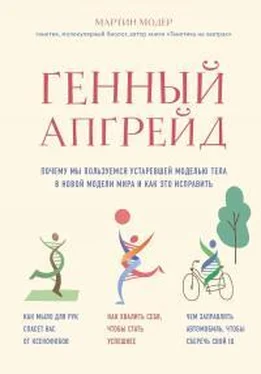



![Мартин Модер - Генетика на завтрак [Научные лайфхаки для повседневной жизни]](/books/416623/martin-moder-genetika-na-zavtrak-nauchnye-lajfhaki-thumb.webp)
